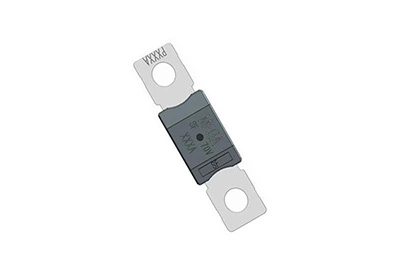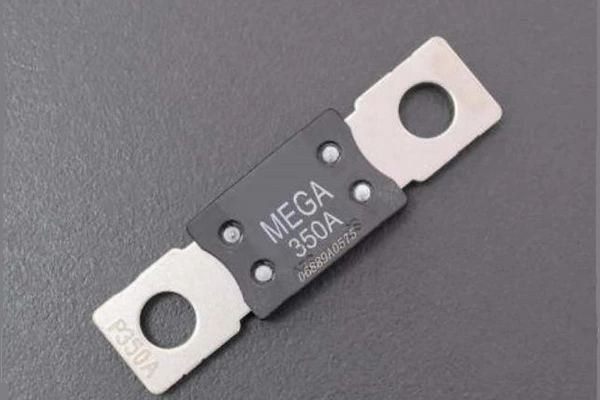Comprehensive Guide To Bolt Down Fuses: Structure, Function And Applications
Introduction
In modern automotive, industrial, and renewable energy systems, protecting high-current circuits is essential for safety and performance. One of the most reliable solutions is the bolt down fuse, also known as a bolt-on fuse. Unlike conventional plug-in fuses, bolt down fuses are mechanically secured with bolts, providing superior stability and higher current handling capability. They are widely used in electric vehicles (EVs), trucks, heavy machinery, UPS systems, and renewable energy storage applications.
What Is a Bolt Down Fuse?
A bolt down fuse is a type of high-current fuse that is mounted onto electrical systems using bolts. This design ensures a secure electrical connection, reducing the risk of contact failure caused by vibration, heat, or prolonged operation.
- Compared to plug-in fuses, bolt down fuses handle much higher currents, typically from 100A to over 500A.
- They are specifically designed for demanding environments such as automotive power distribution, battery protection, and industrial equipment.
Structure and Design Features of Bolt Down Fuses
Fuse Element
The fuse element is the core component that melts when excessive current flows through. It is usually made of copper or alloy material to ensure precise melting characteristics, offering fast and accurate circuit protection.
Housing and Terminals
The fuse body is encased in a durable insulated housing, while the terminals are designed with bolt holes (M5, M6, M8, etc.) for secure fastening. This bolted structure provides excellent vibration resistance, making it ideal for vehicles and heavy equipment.
Common Package Sizes
Bolt down fuses come in different sizes to fit various applications. Typical bolt hole sizes range from small M5 terminals for compact automotive fuses to larger M8 types for industrial and renewable energy systems.
How Do Bolt Down Fuses Work?
The working principle of a bolt down fuse is the same as any other fuse:
- Under normal conditions, current flows safely through the fuse element.
- When the current exceeds the rated value, the element heats up and melts.
- This interrupts the circuit and protects downstream components from damage.
What makes bolt down fuses unique is their ability to respond quickly in high-current applications, providing both fast-blow and time-delay characteristics depending on the circuit’s requirements.
Advantages of Bolt Down Fuses
High Current Capacity: Can handle 100A–500A or higher, perfect for main power circuits.
Vibration Resistance: The bolt-on design prevents loosening, ensuring consistent performance in vehicles and machinery.
Secure Installation: Reduces the risk of overheating or poor contact compared to plug-in types.
Long-Term Reliability: Designed for harsh conditions, bolt down fuses provide stable protection for years of service.
Typical Applications of Bolt Down Fuses

Automotive and EVs
- Protects EV battery packs, inverters, and DC/DC converters
- Used in commercial trucks and heavy-duty vehicles to safeguard the main circuit
Industrial Equipment
- Applied in Uninterruptible Power Supply (UPS) systems
- Protects large motors and industrial control panels from overload
Renewable Energy Systems
- Safeguards solar inverters from short circuits
- Ensures reliable operation of energy storage battery systems
Standards and Ratings
When selecting a bolt down fuse, engineers must consider:
- Current and Voltage Ratings: Common ranges are 32V, 58V, 80V, and higher for industrial use.
- Breaking Capacity: Ensures the fuse can safely interrupt fault currents.
- Certification Standards: Many bolt down fuses meet UL, ISO, and SAE requirements for automotive and industrial safety.
Conclusion
Bolt down fuses are a critical component for protecting high-current electrical systems. Their robust structure, vibration resistance, and high reliability make them an ideal choice for automotive, industrial, and renewable energy applications. Whether in electric vehicles, UPS systems, or solar storage, a bolt down fuse ensures safe, long-lasting circuit protection.
If you are designing or maintaining high-power systems, choosing the right bolt down fuse can greatly enhance the safety and efficiency of your electrical network.
